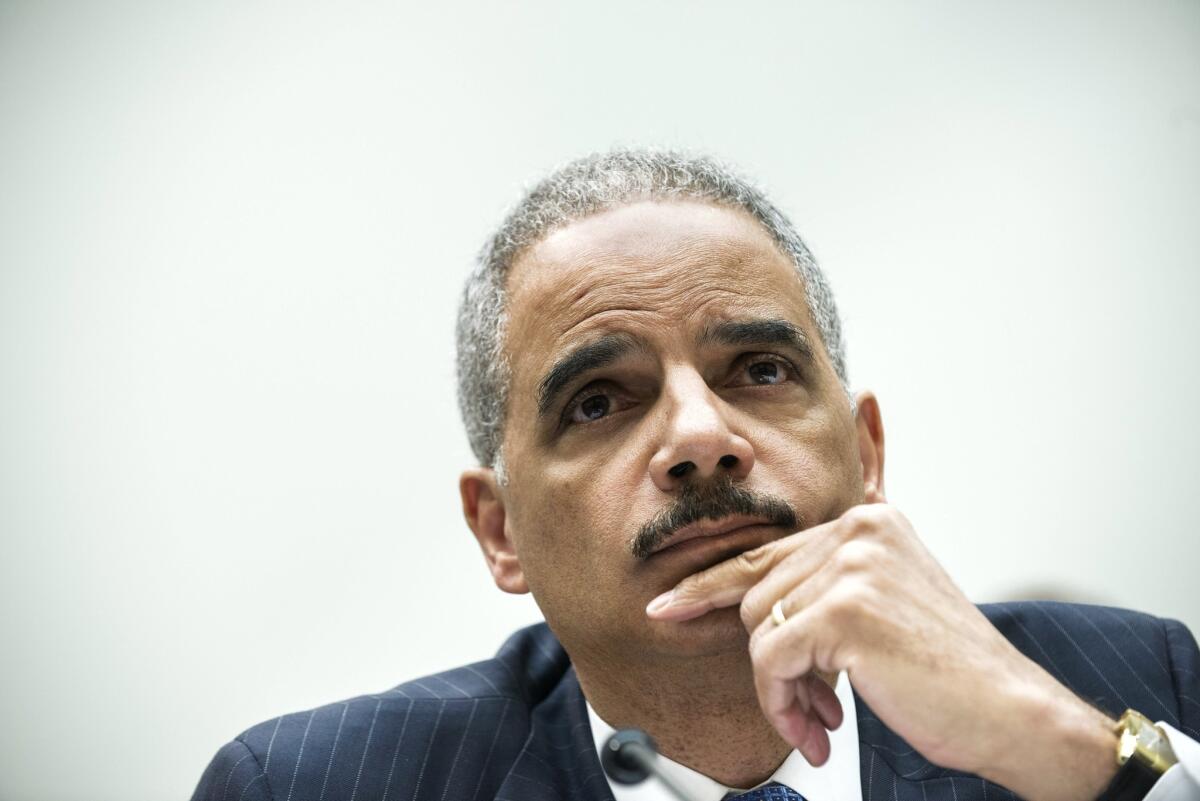Justice Department’s watchdog faults mortgage fraud prosecutions

The U.S. Justice Department used faulty statistics to overstate its mortgage-fraud prosecution efforts and ranked mortgage-fraud last in its list of priorities despite public pledges to combat these types of crimes, an internal watchdog said Thursday.
The 52-page report by the Justice Department’s inspector general found that for the fiscal years of 2009 through 2011, the federal law enforcement agency’s effort to prosecute mortgage fraud fell short even after receiving nearly $200 million in federal funding.
Thursday’s report undercuts contentions by the federal government made four years ago that it would aggressively investigate cases of mortgage fraud, which proliferated following the housing bubble and eventual crash.
President Obama in 2009 signed an executive order creating the Financial Fraud Enforcement Task Force, an inter-agency group that included 25 federal and state agencies, regulators and inspectors general. The task force was headed by a Justice Department official and among its missions was to ensure cooperation with the myriad of agencies.
Ellen Canale, a Justice Department spokeswoman, disputed parts of the report and pointed out that mortgage fraud convictions rose every year during the period the report examined. From 2009 to 2010, the number of convictions nearly doubled from 555 to 1,087, she said.
“The facts regarding the Department’s work on mortgage fraud tell a much different story than this report,” Canale said in a statement. “In the time period in question, the number of mortgage fraud indictments nearly doubled, and the number of convictions rose by more than 100 percent. As the report itself notes, even at a time of constrained budget resources, the department has dedicated significant manpower and funding to combatting mortgage fraud.”
But for all the tough talk, the department’s internal watchdog found that in the FBI Criminal Investigation Division, mortgage fraud was barely a blip on the agency’s radar. In field offices in Los Angeles, New York, Miami and Baltimore -- cities that saw large amounts of the morgage fraud -- the crime was listed as a low priority or not at all, the report said.
“Despite receiving significant additional funding from Congress to pursue mortgage fraud cases, the FBI in adding new staff did not always use these new positions to exclusively investigate mortgage fraud,” the report concluded. “Moreover, when we attempted to assess the effectiveness of the Department’s efforts in pursuing mortgage fraud cases, we found that DOJ could not provide readily verifiable data related to its criminal and civil enforcement efforts.”
The inspector general’s report highlighted an October 2012 press conference in which the task force trumpeted its enforcement efforts as part of its Distressed Homeowners Initiative.
Atty. Gen. Eric H. Holder said then that its efforts in the year before had resulted in 530 defendants being charged in several states. The attorney general had also announced that there were 110 federal civil cases filed against 150 defendants for losses totaling at least $37 million. In all, the agency said these cases involved more than 73,000 homeowner victims and total losses estimated at more than $1 billion.
The figures, however, were grossly overstated, the inspector general said. In reality, the number of criminal defendants charged was not 530, but instead 107 and the total estimated losses were only $95 million.
The report said that only days after the press conference, the Justice Department said it had “serious concerns over the accuracy of the reported statistics.” It would take 10 months before the agency revised those figures, but continued to use them during that time.
Press releases and other material have since been revised, Canale said.







